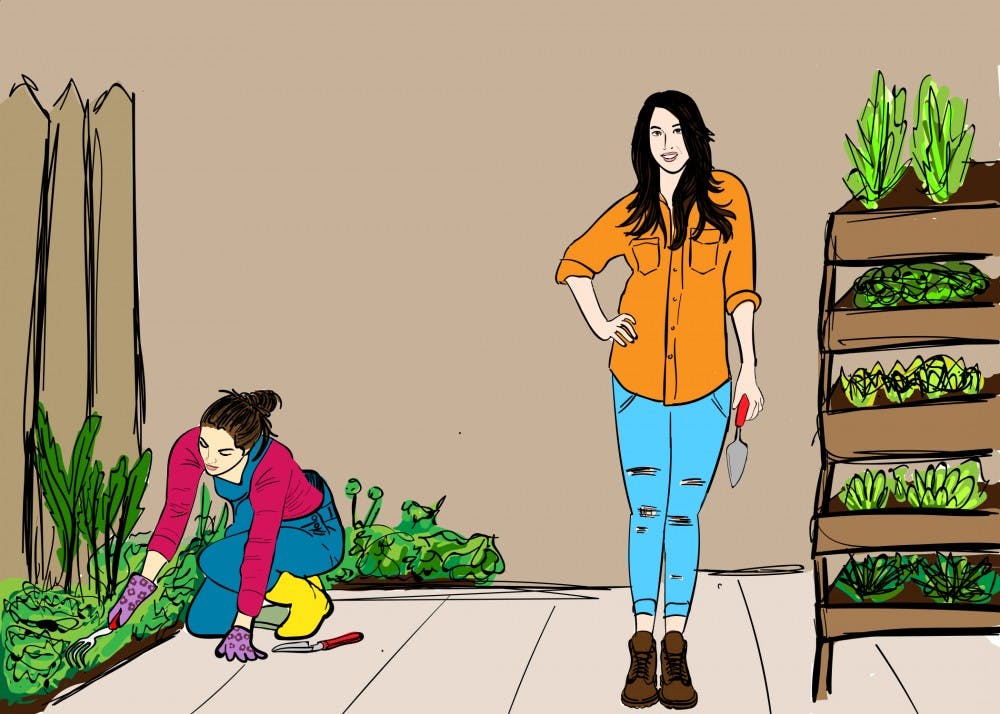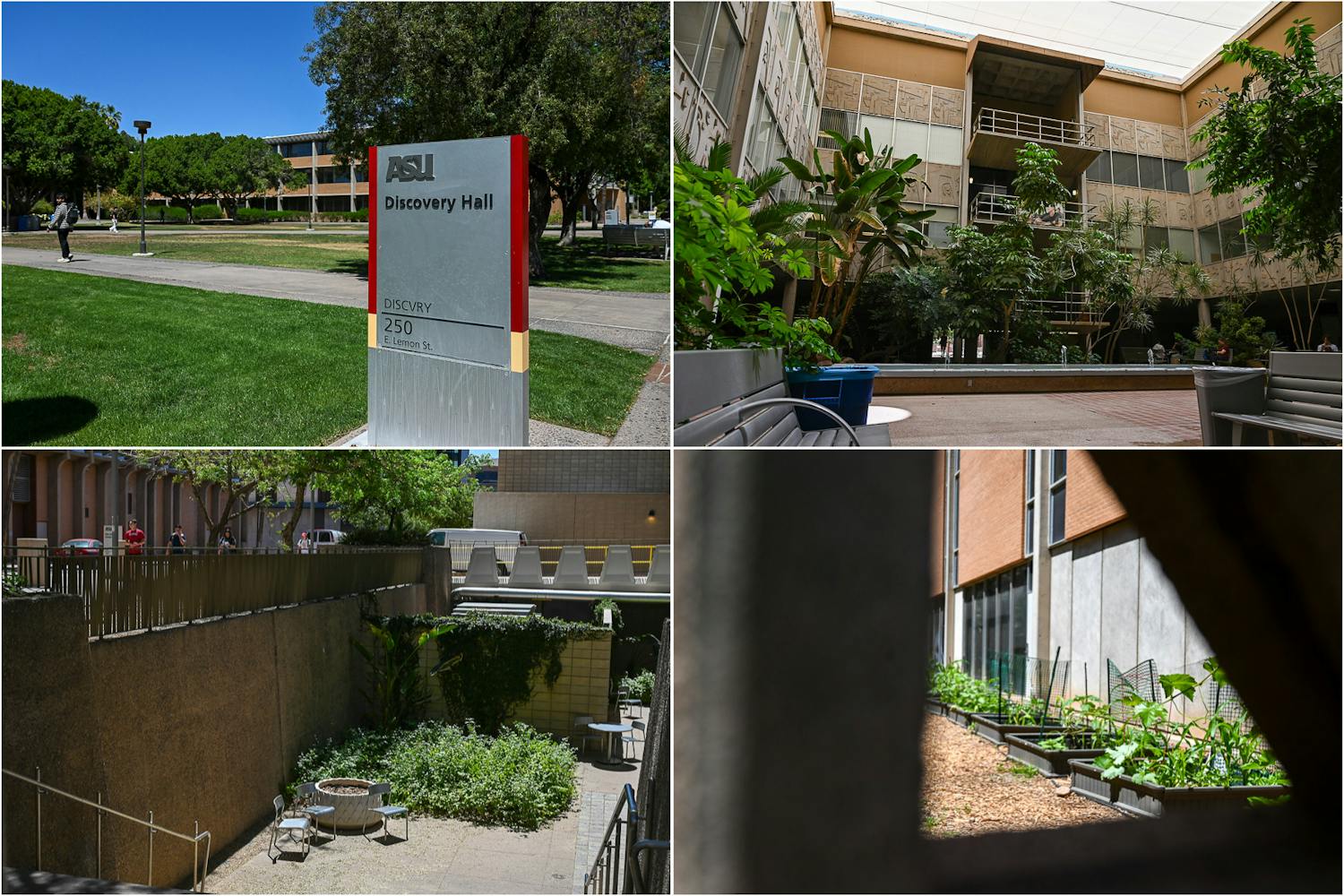Troy Albright, a Phoenix based pharmacist and farming entrepreneur spoke to students at ASU’s Polytechnic campus on Oct. 25 about the potential of aeroponics.
Aeroponics is a process of growing plants without the use of soil by suspending plants and nourishing them using mist.
Albright was invited as part of the Science and Mathematics Colloquium Series, a series designed to expose students to the work of researchers and practitioners in various fields.
“He’s a pharmacist and gardener," Holly Huffman, a senior lecturer at ASU’s College of Integrated Sciences and Art, said. "A lot of our students are pre health professionals, and it’s important for them to hear people like him speak."
Albright and his wife, Lisa, established True Garden in 2013. True Garden is a solar powered aeroponic greenhouse capable of producing cool-season crops year round.
At the heart of True Garden’s operation are tower gardens produced by Future Growing.
Future Growing was founded by Tim Blank who worked at Disney World's "The Land" attraction for several years. "The Land" is an educational attraction which features agricultural technology, such as hydroponics.
Blank patented the Tower Garden, which uses fewer delicate moving parts than hydroponic systems. The tower garden also uses less water.
True Garden was designed in partnership with Future Growing to preserve land and water. Albright said the technology is ideal for urban environments and wanted to prove it’s applicable in Arizona’s climate.
“What I grow in my greenhouse would take one to two acres," Albright said. "It’s like 1/25 of an acre. Every time you go vertical you can grow a lot more. We use 90 percent less land and water than when growing in soil.”
Albright said water is a particularly precious resource in places like Arizona because of its scarcity. He also said the soil in Arizona makes it difficult to grow crops, and aeroponics is a solution for both of those issues.
In addition to producing crops, True Garden uses its greenhouse to educate the public about aeroponic technology and health issues involving what people eat. Albright said the food produced at True Garden is more nutritious than most food grown in soil.
He attributed this to the fact that a lot of soil is saturated with heavy metals which crops take in through their roots. The food grown at True Garden doesn't need to be heavily sprayed with pesticides, Albright said.
He encouraged attendees to buy locally grown food and use tower gardens to grow their own food. Imported crops are legally required to be sprayed with chemicals that can be detrimental to people's long-term health, even if it was organically grown.
Albright said that although food is not a replacement for medicine, it can be used to prevent disease.
“(Albright’s) work is important because people in the health industry should think critically to improve long-term health in a preventative way,” Steve Saul, a professor at ASU’s College of Integrated Science and Art, said.
True Garden hosts educational sessions and tours at its greenhouse and also participates in local farmers markets.
Reach the reporter at jicazare@asu.edu or follow @sonic_429 on Twitter.
Like State Press on Facebook and follow @statepress on Twitter.




